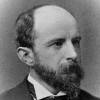“ An artist, if good for anything, foresees what his public will see; and what his public will see is what he ought to have intended—the measure of his genius. ”
Henry Adams, Mont-Saint-Michel and Chartres (1904). copy citation
| Author | Henry Adams |
|---|---|
| Source | Mont-Saint-Michel and Chartres |
| Topic | genius public |
| Date | 1904 |
| Language | English |
| Reference | |
| Note | |
| Weblink | http://www.gutenberg.org/cache/epub/4584/pg4584-images.html |
Context
“We are ignorant tourists, liable to much error in trying to seek motives in artists who worked seven hundred years ago for a society which thought and felt in forms quite unlike ours, but the medieval pilgrim was more ignorant than we, and much simpler in mind; if the idea of an ornament occurs to us, it certainly occurred to him, and still more to the glassworker whose business was to excite his illusions. An artist, if good for anything, foresees what his public will see; and what his public will see is what he ought to have intended—the measure of his genius. If the public sees more than he himself did, this is his credit; if less, this is his fault. No matter how simple or ignorant we are, we ought to feel a discord or a harmony where the artist meant us to feel it, and when we see a motive, we conclude that other people have seen it before us, and that it must, therefore, have been intended.”
source



